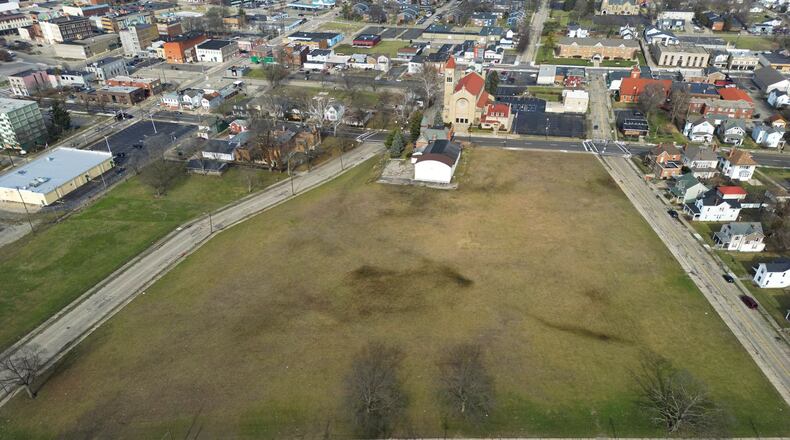The grant will be used to help with the project’s implementation, including feasibility studies, environmental assessments, tenant stakeholder coordination, conceptual and marketing planning, according to city staff.
Credit: HANDOUT
Credit: HANDOUT
A “food desert” exists in the neighborhood especially for those without personal transportation and physical challenges make access to fresh food shopping a challenge.
“We looked at studies from the local health department as well as local hospital networks,” said Luis Rodriguez, assistant director of community and economic development. “What we found in surveying the community the top three needs that consistently came up were a lack of access to healthy food, lack of access to health care and communal space.”
This project checks all those boxes.
Past proposals on the land involved residential developments that weren’t moved forward by developers or weren’t what council envisioned, according to Councilman Paul Lolli, who is the former city manager and fire chief.
“A grocery is needed in the neighborhood and would be good on a portion of that site,” Lolli said. “But only if it is supported by residents. No retailer is going to locate there if it isn’t sustainable and supported by residents.”
The project calls for a community and employee-owned cooperative grocery store offering fresh, locally sourced produce, staple groceries and foods; a health clinic providing accessible services focusing on preventative care and wellness; and a community room that is a central hub for workforce development, entrepreneurial programming, home ownership and community engagement.
“We would be remiss not to use this land for something that can have such a great impact on the community,” Rodriguez said. He added the city is pursuing other grant opportunities and other funding avenues from the federal all the way down to the local foundation level.
The $2 million to $3 million funding strategy includes securing city contributions, corporate sponsors, philanthropic contributions and foundational giving, according to the staff report.
“There is are other ideas on what can also be included in the project. All speculation, but you never who’s going to pop up. What partners we will find,” Rodriguez said.
About the Author


